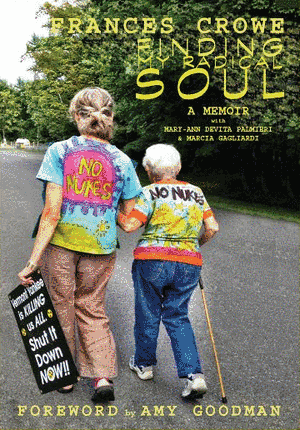Inauguration 2017 Special Coverage w/ Angela Davis, Naomi Klein, Ralph Nader & More
Menu

Special coverage in the Trump Era
From Public Citizen's Corporate Presidency site: "44 Trump administration officials have close ties to the Koch brothers and their network of political groups, particularly Vice President Mike Pence, White House Legislative Affairs Director Marc Short, EPA Administrator Scott Pruitt and White House budget director Mick Mulvaney."
Dark Money author Jane Mayer on The Dangers of President Pence, New Yorker, Oct. 23 issue on-line
Can Time Inc. Survive the Kochs? November 28, 2017 By Jane Mayer
..."This year, among the Kochs’ aims is to spend a projected four hundred million dollars in contributions from themselves and a small group of allied conservative donors they have assembled, to insure Republican victories in the 2018 midterm elections. Ordinarily, political reporters for Time magazine would chronicle this blatant attempt by the Kochs and their allies to buy political influence in the coming election cycle. Will they feel as free to do so now?"...
"Democracy in Chains: The Deep History of the Radical Right’s Stealth Plan for America" see: our site, and George Monbiot's essay on this key book by historian Nancy MacLean.
Full interview with The New Yorker’s Jane Mayer March 29, 2017, Democracy Now! about her article, "The Reclusive Hedge-Fund Tycoon Behind the Trump Presidency: How Robert Mercer Exploited America’s Populist Insurgency."
Democracy Now! Special Broadcast from the Women's March on Washington
The Economics of Happiness -- shorter version
Local Futures offers a free 19-minute abridged version of its award-winning documentary film The Economics of Happiness. It "brings us voices of hope of in a time of crisis." www.localfutures.org.
What's New?
March 16, 2015
How Frances Crowe found her radical soul
Book review by Frida Berrigan in Waging Nonviolence, March 14, 2015
"Vitality, verve and vision. Those are three words that come to mind when I think of Frances Crowe, the peace powerhouse of Western Massachusetts.
Frances will celebrate her 96th birthday on the Ides of March. She was already old when I met her more than 20 years ago as a student at Hampshire College. As a work study student, I cleaned toilets on the second floor of the library for a year before realizing that I could intern for the American Friends Service Committee, or AFSC, in Northampton instead.
In a peace-poster-plastered office, in the basement of her tidy home up the hill from NoHo’s main drag, I learned how to file papers, make copies, call reporters, draft press releases and take phone messages. Sometimes she would send me out with a roll of tape and a staple gun to hang posters for events on telephone poles and coffee shop bulletin boards. I don’t recall what big issues we were organizing around at the time. There was U.S. military intervention in the former Yugoslavia, the imposition of neoliberal economic policies in Central and South America, the 50th anniversary of the bombing of Hiroshima and Nagasaki to name a few of the mid-90s issues that her AFSC office would have been concerned about. Sometimes we would eat lunch together: Homemade hummus and cut up vegetables, cottage cheese with nutritional yeast, thick slices of whole wheat bread.
It was not glamourous or exciting work. It did not feel cutting edge or hardcore, but it was all of those things — I am some small part of Frances’ long life of resistance and peace work. I learned so much from her. And then I learned even more reading her incredible life story “Finding My Radical Soul: A Memoir.”

In the book, she recounts her upbringing, education and as much of her family background as she was able to uncover. This is all interesting stuff, but the book really gets going when she begins to relate how her adult life intersects with history. Frances married Tom Crowe in May 1945 and they moved to New Orleans where Tom served as a doctor on an Army ship. On August 6 of that year, she was ironing placemats and making arrangements to welcome her husband home after a tour of duty. She listened to the radio as she worked to make a picture perfect home and meal for his return. The announcer said that the United States had dropped a new kind of bomb on the Japanese city of Hiroshima.
“This act of violence shook me to the core,” Frances writes. She unplugged the iron and went out into the streets, looking, she writes, “for someone interested in nonviolence.” New to the city, she could not find a peace center, but she walked into a used bookstore where the shop keeper told her to start with Leo Tolstoy, “the father of nonviolence.” And so she did. Years later, Frances learned that this is exactly where Gandhi started too." ...

